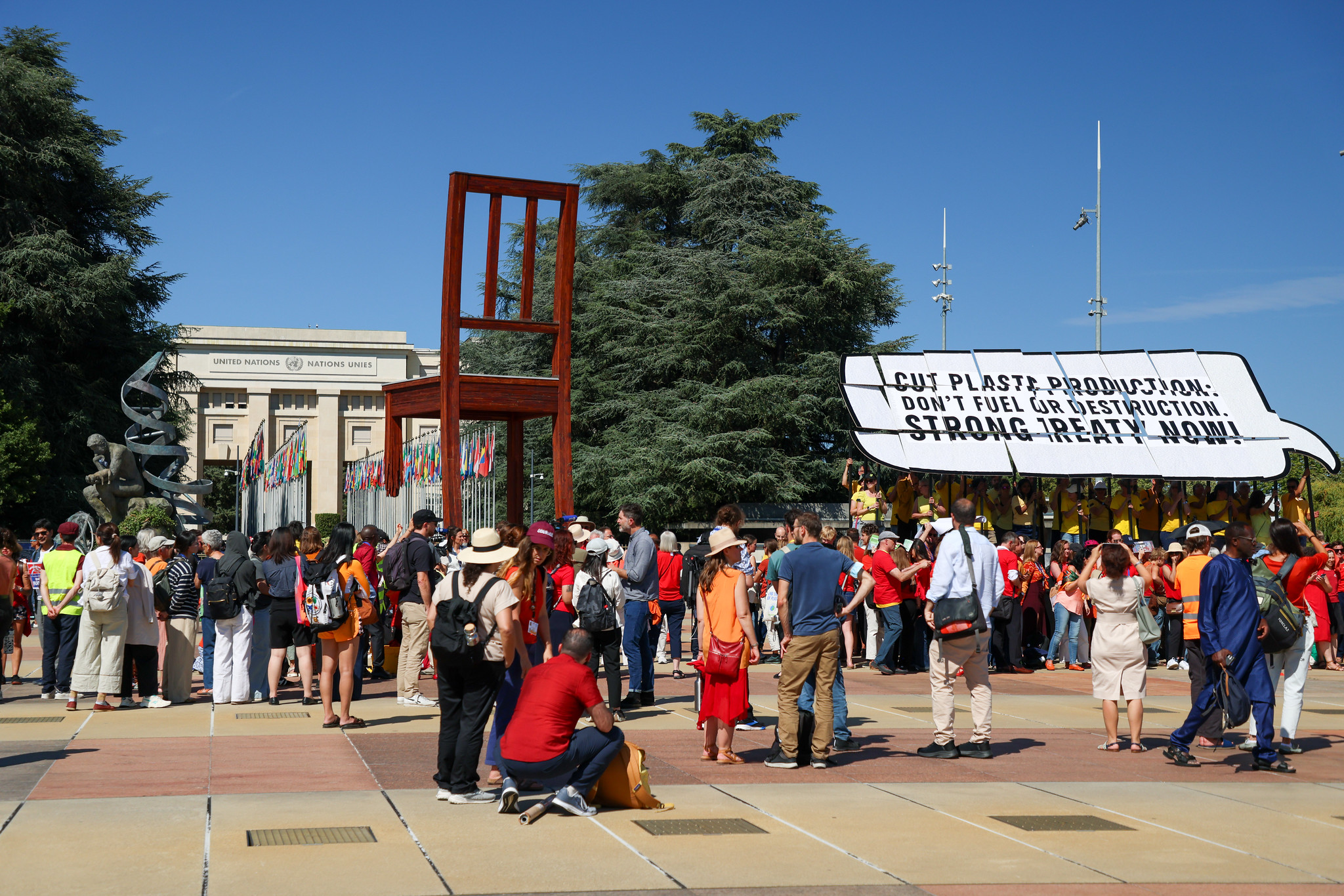UN plastic pollution treaty talks collapse without agreement
The High Ambition Coalition of over 70 countries refused to accept a weakened treaty text after oil-producing nations sblock measures to cap plastic production and restrict hazardous chemicals.

Negotiations for a global plastic pollution treaty ended without agreement today (15 August), after oil-producing countries including the United States blocked proposals to cap plastic production and phase out hazardous chemicals.
The resumed fifth session of the Intergovernmental Negotiating Committee (INC-5.2) in Geneva collapsed when delegates from 184 countries failed to overcome differences over the proposed treaty's scope and ambition.
Inger Anderson, Executive Director of the United Nations Environment Programme (UNEP), acknowledged the failure in a brief statement to the media, saying: "It is very clear that we did not arrive where we wanted to arrive, but I also believe that everybody came here with the intention to get the deal done."
She added: "However, it is clear that we are living in an era of significant political complexity. We're living in a time of economic challenges and obviously multilateral complexity."
The collapse centred on an irreconcilable divide between the High Ambition Coalition (HAC) of over 70 countries (including the UK) and a smaller group of oil and gas-producing states. The HAC pushed for legally binding controls on plastic production and restrictions on hazardous chemicals across the full lifecycle of plastics. Oil-producing nations, supported by the United States, insisted on primarily limiting the treaty to waste management and recycling.
Opposition from oil producers derails agreement
A ‘like-minded group’ of countries including Saudi Arabia, Russia, Iran, Kuwait and China gamed the consensus-based decision-making process to block any attempt to mandate production controls. Supporting this, the United States favoured a national approach to managing plastic demand and supply.
The deadlock was compounded by procedural rules requiring consensus for any meaningful decision, effectively giving any country veto power over proposals despite over 100 countries supporting production controls.
Chair Luis Vayas Valdivieso of Ecuador attempted to break the impasse on 13 August by tabling a new draft text, but this was immediately rejected by all sides. The High Ambition Coalition condemned it for removing key provisions on production and health, whilst oil-producing countries said it still exceeded their "red lines" on scope.
The failed text would have established a framework of voluntary, nationally-determined actions similar to the Paris Climate Agreement, rather than binding global rules. The HAC stated this was not enough to address plastic pollution, which involves thousands of distinct polymers and chemicals circulating in global supply chains.
Current global plastic production exceeds 460 million tonnes annually, with only nine per cent being recycled. Without new measures, plastic waste is projected to reach 1.2 billion tonnes by 2060. According to the Organisation for Economic Cooperation and Development $2.1 trillion will be needed between 2025 and 2040 to enhance waste management systems and ensure adequate collection, recycling, and disposal of plastic.
Environmental groups expressed fury at the outcome. David Azoulay of the Center for International Environmental Law described the result as an "abject failure," whilst Fabienne McLellan of OceanCare called the Chair's draft a "betrayal of good faith diplomacy."
The breakdown has exposed fundamental flaws in the UN's consensus-based approach to environmental governance when confronted by powerful fossil fuel interests. Many observers are now calling for procedural reforms to prevent small groups of countries from blocking global environmental action.
Civil society groups emphasised that no treaty was preferable to a weak agreement that would legitimise continued pollution. As Thais Carvajal of Alianza Basura Cero Ecuador stated: "If the talks failed, it means that ambitious Member States stood up and refused to compromise on fossil fuel interests."
Erin Simon, Vice President and Head of Plastic Waste & Business for the World Wildlife Fund commented: "This breakdown in negotiations means the plastic crisis will continue unchecked, while the world waits for the urgent action it so desperately needs. The path forward is now uncertain. We urge the majority of countries – who mobilised throughout this process to demonstrate their true commitment to ending plastic pollution – to reassert their leadership."
With no clear timeline for resuming negotiations, Anderson indicated that member states would need time to "reflect and regroup," with the next opportunity for discussion likely to be the UN Environment Assembly in December.
Sian Sutherland, Co-Founder, A Plastic Planet, lamented another fruitless conference: "The failure to reach agreement on the UN Global Plastics Treaty represents a devastating capitulation to big oil’s interests. After three years of unprecedented collaboration a minority of governments have scuppered the opportunity for binding health and production commitments that were fundamental to the Treaty's effectiveness.
“What makes this particularly grotesque is that industry leaders themselves now recognise that the ubiquity of plastic will soon become economically unviable, yet global consensus and an ambitious UN Chair, proved impossible when the disruptive few were driven by a pack of fossil fuel lobbyists ready to reap the rewards of failure.”





